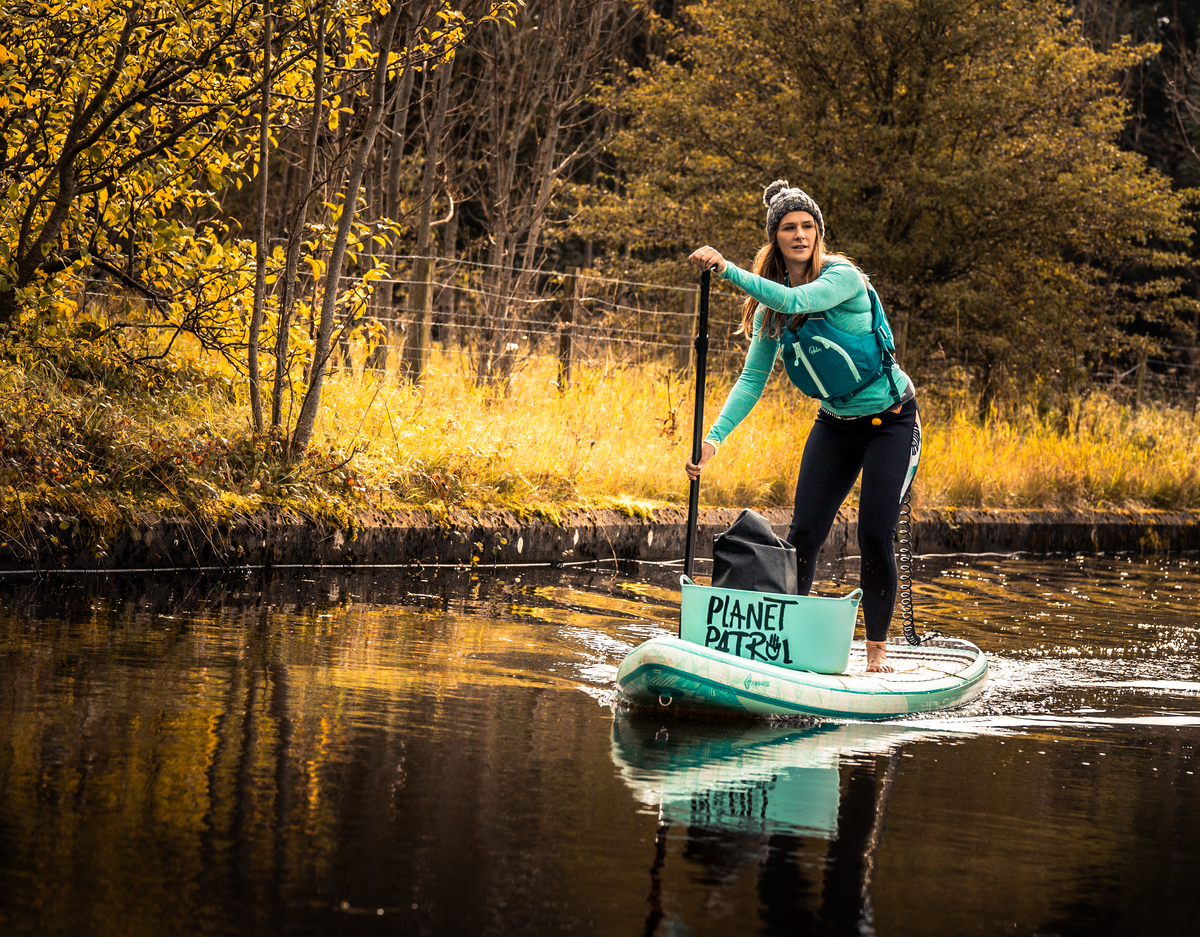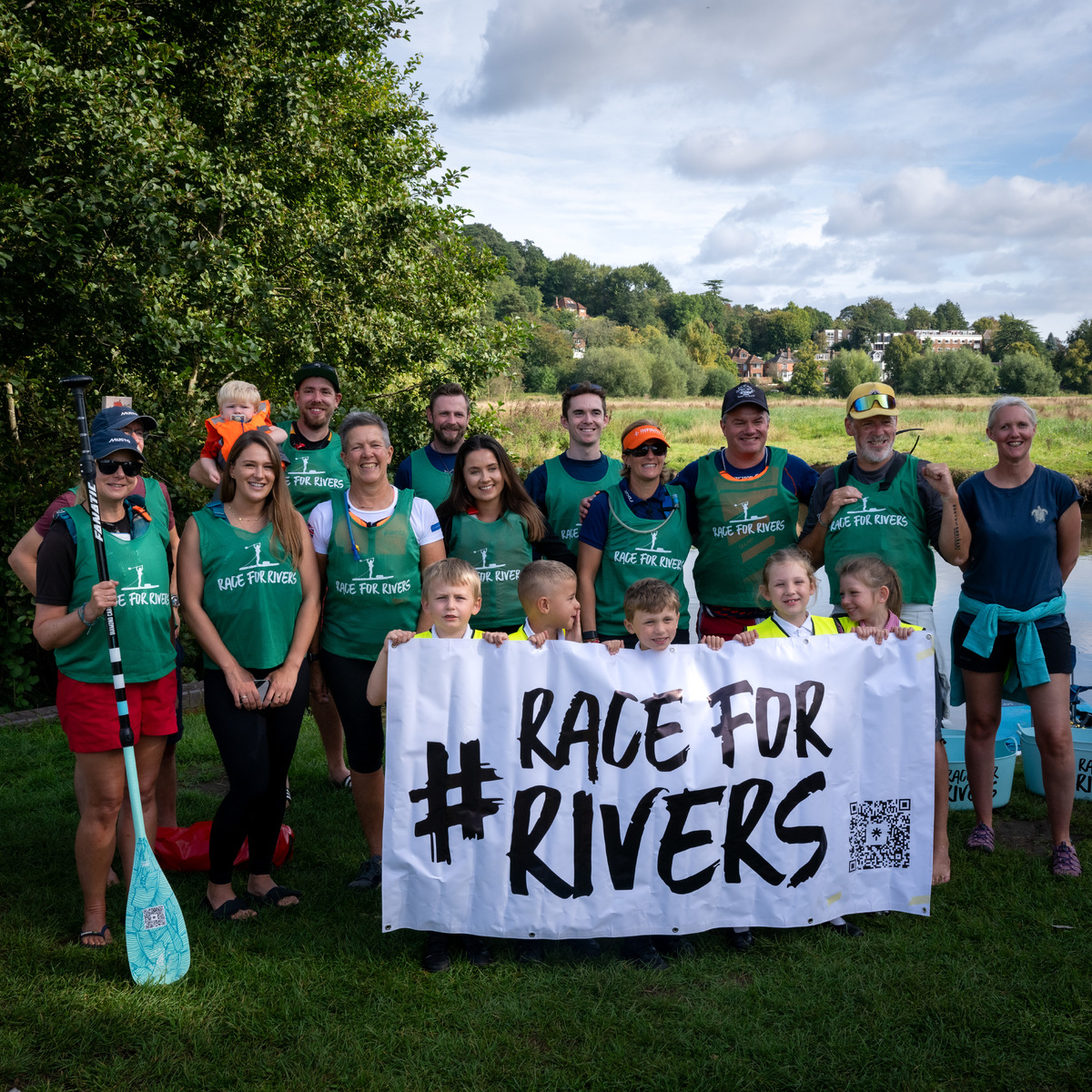Insights
Training
On-demand
How does a environmental pollution monitoring app create lasting change? We explore this question and more with Planet Patrol’s founder, Lizzie Carr
Planet Patrol is a not-for-profit organisation committed to protecting, preserving, and restoring nature, with a focus on tackling single-use plastic and pollution in the UK. This includes running community clean ups where participants collect litter data through the Planet Patrol app.
The data collected through the app is analysed by the organisation’s scientific partners and used to develop targeted solutions, hold polluters accountable, and shape government policies. Their Litter Map uses the data to identify litter trends and patterns around the world.
In this interview, we speak to the not-for-profit’s founder, Lizzie Carr, to learn more about the importance of quality community data collection and the development of the app, as well as the digital future of Planet Patrol’s campaign to clean up the planet.
Lizzie Carr (LC): Community data collection is vital to our mission because without the individuals who participate, it would be impossible to capture pollution data on this scale. Planet Patrol brings together communities, creating a collective force that contributes to a more comprehensive understanding of environmental challenges and informs solutions.
The data gathered by our volunteers is a powerful tool for advocacy. It is building a scientifically robust repository of data evidence which can then be used for further research and campaigning. This evidence is essential for driving lasting change by influencing policymakers and polluters.
LC: Planet Patrol’s journey began as a one-woman crusade and has evolved into a global movement. In 2016, I completed my first world challenge to paddleboard the length of England’s connected waterways solo and unsupported to raise awareness of the issue our inland waterways faced. I photographed every single piece of single-use pollution I saw and plotted it on a live map which was later developed into the app we know and use today.
Seven years on, and Planet Patrol has over 50,000 volunteers who have helped to record nearly half a million pieces of litter data and over 1600 water quality readings in the app. We are revolutionising the way we address environmental issues by democratising data collection and empowering a global community dedicated to environmental action.

Lizzie Carr raised awareness for environmental issues by being the first person in history to paddleboard the entire length of Britain’s waterways, solo and unsupported
LC: Before the Planet Patrol app was developed for people all over the world to share real time litter data, it was simply an interactive map.
Over time, as the organisation has evolved and the environmental issues we are tackling have broadened, functionality and features in the app have been upgraded. Not only are we collecting granular litter data all over the world with uploads in more that 113 countries globally, we have also introduced bi-annual observational data surveys into the app that assess the health of waterways nationwide.
Our most recent features allow volunteers to record water quality data and report water pollution incidents and include gamification elements to increase retention.
LC: The importance of collecting data in an accessible and user-friendly way has been a significant part of Planet Patrol’s app development. Establishing clear and standardised procedures for data collection has helped ensure there is consistency.
We also implement quality control measures during and after data collection. This involves spot-checking, manual verifications and cross-validation to identify and correct errors.
We provide user training and resources for data collection methods and have run pilot studies to gather insights and also created mechanisms for feedback from volunteers. We encourage them to report challenges, uncertainties, or issues they encounter during data collection so that corrective actions can be taken and improvements to the user journey made.

Race For Rivers was a 642km water-testing relay from Surrey to Cumbria involving over 100 participants
LC: Social media has played a huge part in Planet Patrol’s growth as it’s enabled us to reach people – completely free – over the years and galvanise support for our mission. It continues to be a key part of what we do, and it allows us to share news and urgent calls to action.
Social media platforms are susceptible to the spread of misinformation, which is one of its limitations in the campaigning space. And while social media can raise awareness, it can sometimes stay in echo chambers and may not always translate into tangible offline actions. Achieving real-world impact requires a multifaceted approach beyond online activism and that’s something we are heavily focused on.
LC: The Earthshakers podcast has been instrumental in sharing in-depth information, insights, and updates on specific topics related to our work at Planet Patrol in a digestible and informal way. It’s allowed me to interview people spearheading work on the different issues we address, like microplastics, and creates a space to have complex and nuanced conversations that keep moving the dial forward on environmental issues.
The podcasts also offer a channel for direct communication with the audience. By encouraging listener feedback and interaction, I can gain valuable insights, address concerns, and focus on other areas of interest that might not have otherwise been on my radar.
LC: Utilising digital technology has always been at the core of Planet Patrol. We launched a litter tracking app in 2016 and have been adding features and developing it into a more sophisticated community science tool since. The Planet Patrol app, which houses an international repository of data collected by volunteers, is also what truly sets us apart from other campaigning organisations.
In the future, we see our community and our data continuing to grow. We are exploring innovations in digital technologies to help measure and monitor water quality more effectively but, ultimately, we want to see community science formally recognised in government frameworks to address environmental issues and used to help inform solutions.
Follow-up questions for CAI
How does community data collection enhance environmental policy development?What quality control methods ensure accuracy in volunteer-collected pollution data?How can gamification improve user engagement in environmental monitoring apps?In what ways does social media support offline environmental activism effectively?How might digital tools advance water quality monitoring in community science?Click above to learn more about Planet Patrol’s work to tackle some of the most urgent environmental challenges we face today
Our courses aim, in just three hours, to enhance soft skills and hard skills, boost your knowledge of finance and artificial intelligence, and supercharge your digital capabilities. Check out some of the incredible options by clicking here.